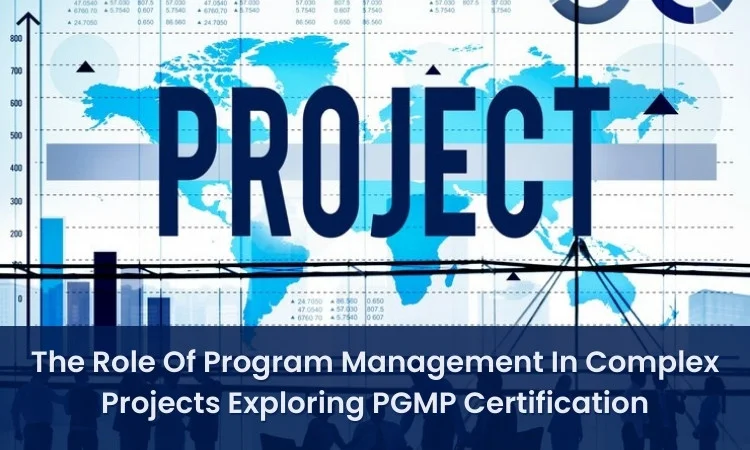Understanding Program Management
Program management is the process of managing several related projects with the goal of improving an organization’s performance. A program manager oversees multiple projects that are linked together, ensuring that they align with the organization’s strategic objectives. Unlike project management, which focuses on individual projects, program management looks at the bigger picture, coordinating efforts to achieve broader business goals.
The Complexity Of Modern Projects
Modern projects have become increasingly complex due to several factors:
Globalization
Many projects now involve teams and stakeholders from different parts of the world, adding layers of complexity in terms of communication, cultural differences, and time zones.
Technological Advances
Rapid advancements in technology require constant updates and integrations, making project scopes more dynamic and challenging to manage.
Regulatory Requirements
Adhering to various local and international regulations can complicate project execution.
Multiple Stakeholders
Projects often have multiple stakeholders with different interests and expectations, requiring careful management and negotiation skills.
Role Of Program Management In Complex Projects
Program management plays a critical role in handling these complexities by:
Strategic Alignment : This alignment helps in achieving long-term objectives and maximizing the value delivered to stakeholders.
Resource Optimization : Efficiently allocating resources across projects to avoid conflicts and ensure that critical tasks have the necessary support.
Risk Management : Identifying, assessing, and mitigating risks that could impact multiple projects. A program manager takes a proactive approach to risk management, ensuring that potential issues are addressed before they become major problems.
Integrated Planning : Developing an integrated plan that encompasses all projects within the program, ensuring that timelines, budgets, and resources are coordinated effectively.
Stakeholder Management : Managing relationships with various stakeholders to ensure their needs and expectations are met. Effective communication and negotiation skills are essential in maintaining stakeholder satisfaction.
Change Management : Handling changes that may affect multiple projects, ensuring that any adjustments are implemented smoothly and do not disrupt the overall program objectives.
The PGMP Certification
The Program Management Professional (PGMP) certification, offered by the Project Management Institute (PMI), is designed for experienced program managers who want to demonstrate their expertise in managing multiple, related projects. The certification process involves rigorous assessments, including a comprehensive application review and a challenging exam.
Benefits Of PGMP Certification
Enhanced Knowledge and Skills : The PGMP certification provides in-depth knowledge and advanced skills in program management.
Career Advancement : Earning the PGMP certification can significantly enhance career prospects. It demonstrates a high level of competence and commitment to the profession, making certified professionals more attractive to employers.
Increased Earning Potential : PGMP-certified professionals often command higher salaries compared to their non-certified counterparts. The certification validates their ability to manage complex programs, justifying the higher compensation.
Global Recognition : The PGMP certification is globally recognized, allowing professionals to showcase their expertise and credibility in program management on an international level.
Networking Opportunities : PGMP certification holders gain access to a vast network of other certified professionals, providing opportunities for collaboration, knowledge sharing, and career growth.
Preparing For The PGMP Certification
Meeting Eligibility Requirements : Candidates must meet specific educational and professional experience requirements to be eligible for the PGMP certification.
Studying the PMBOK Guide : The Project Management Body of Knowledge (PMBOK Guide) is a crucial resource for PGMP candidates. It provides comprehensive information on best practices, standards, and guidelines in program management.
Taking Preparatory Courses : Many training providers offer preparatory courses for the PGMP certification exam. These courses cover key concepts, provide study materials, and offer practice exams to help candidates prepare effectively.
Gaining Practical Experience : Hands-on experience in program management is essential for success in the PGMP certification exam. Candidates should seek opportunities to manage multiple projects, develop integrated plans, and handle complex stakeholder relationships.
Joining Study Groups : Joining study groups or online forums can provide valuable support and insights from other PGMP candidates. Collaborative learning can help reinforce key concepts and offer different perspectives on program management.
The Exam Process
The PGMP certification exam consists of 170 multiple-choice questions, covering various aspects of program management. The exam tests candidates’ knowledge, skills, and abilities in areas such as:
- Program Strategy Alignment : Understanding how to align program goals with organizational strategy.
- Program Benefits Management : Managing the benefits and outcomes of the program to ensure they meet stakeholders’ expectations.
- Program Stakeholder Engagement : Effectively engaging and managing relationships with stakeholders.
- Program Governance : Establishing and maintaining governance structures to support program management.
- Program Lifecycle Management : Managing the program lifecycle from initiation through closure.
Maintaining The PGMP Certification
Once certified, professionals must maintain their PGMP certification through continuous professional development. This involves earning Professional Development Units (PDUs) by participating in relevant activities such as attending workshops, completing courses, and contributing to the program management community.
Program management is essential for the successful execution of complex projects. It ensures that multiple projects are aligned with strategic goals, resources are optimized, and risks are managed effectively. The PGMP certification provides program managers with the advanced knowledge and skills needed to excel in this challenging field. By earning the PGMP certification, professionals can enhance their career prospects, increase their earning potential, and gain global recognition for their expertise in program management. If you are a program manager looking to advance your career and manage complex projects more effectively, the PGMP certification is a valuable investment in your professional development.

